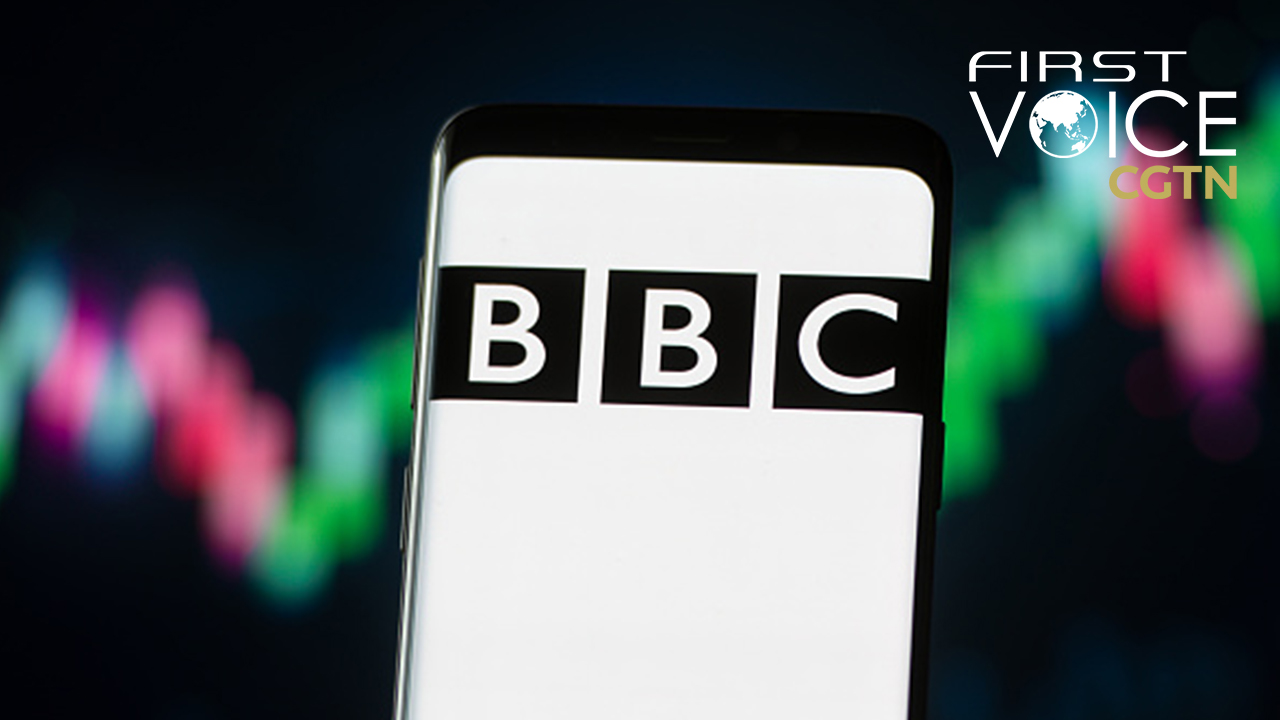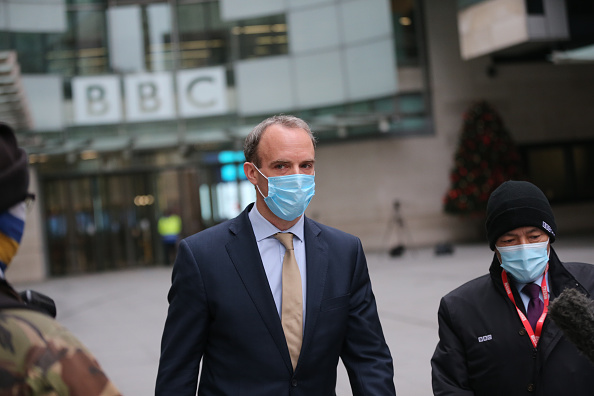
Editor's note: CGTN's First Voice provides instant commentary on breaking stories. The daily column clarifies emerging issues and better defines the news agenda, offering a Chinese perspective on the latest global events.
If one looks at the historical record, Britain has a long-established tradition of being able to push political points and messaging in a subtle way. The British Broadcasting Corporation (BBC), the world's first of its kind, has mastered the art of incorporating political messaging in what appears to be legitimate news, a process described as "feeding" by Nicholas John Cull, author of "Propaganda and Mass Persuasion".
The organization served a pioneering role for the British government in both World War II and the Cold War and after in directly serving its foreign policy objectives.
Against this backdrop, the BBC World Service has ramped up intensely negative coverage of China over the past three years, with the objective of turning public opinion against the country, especially in areas of key strategic interest to the West – Hong Kong and Xinjiang for example. It does so via a means to a subtle, but very clear bias, disguising propaganda as legitimate reporting.
Hong Kong serves as a prime example of this agenda, an issue which the BBC has given relentless coverage. It reports on a very one-sided mantra, one which is both ideological and plays down China's sovereignty over the territory. A report for example, from March 2020, states "China appears to be tightening its grip" and "Rights groups have accused China of meddling in Hong Kong." How does one "meddle" in its own territory? This coincides with its reference to those causing unrest in the city as "pro-democracy protesters" – these are just a few of the ways subtle language is used to convey a point.

UK Foreign Secretary Dominic Raab leaves the BBC headquarters in London, England, November 29, 2020. /Getty
UK Foreign Secretary Dominic Raab leaves the BBC headquarters in London, England, November 29, 2020. /Getty
It refuses, in turn, to give any credence or scrutiny to some of the more malign activities of those involved. They do not report critically on aspects such as violence, foreign collusion, national sovereignty, sedition, etc. Instead, they simplify everything around the phrase "activist," painting a misleading picture of events in the city and largely paint activists in a benevolent tone. Those who are moving away from the city as described as "fleeing" – as if it was some kind of dystopia.
In addition, BBC's coverage has also glorified various activists who are in trouble with the law for legitimate reasons. For example, Jimmy Lai, who is currently being charged with national security offenses, is repeatedly called a "pro-democracy" tycoon in news stories. The BBC frequently depicts him and others as innocent victims of state persecution. It does not give any scope or angle to the fact that Lai is known to have breached the national security law.
Of course, the BBC has been quick to reject any accusations against its neutrality or impartiality. When faced with criticism, the BBC has a litany of hyping up its own sense of "exceptionalism". In its own words, it can do no wrong, touting itself "as the most trusted international broadcaster" in the world, claiming that it is impartial and neutral.
Yet it is odd to repeat the claim that it is "the most trusted" so many times if it is really that confident about its standard of reporting. Or perhaps, it is just another not-so-subtle way of trying to get the viewers to believe in something that it isn't.
(If you want to contribute and have specific expertise, please contact us at opinions@cgtn.com.)

